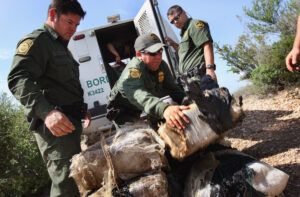A peace process is currently underway in Colombia, bringing together the government and Revolutionary Armed Forces of Colombia (Fuerzas Armadas Revolucionarias de Colombia, FARC). The negotiations are set to address five points that underlie the conflict: rural development, political participation, illicit drugs, victims and ending the conflict.
WOLA Senior Associate for Regional Security Adam Isacson was invited to an official forum in Bogotá, Colombia, last week to provide ideas for the upcoming formal discussion on illicit drugs. During this Forum on the Solution of the Problem of Illicit Drugs, an initiative convened by the United Nations and the National University of Colombia, Isacson outlined the failures of U.S.-funded drug control policies and offered alternative policies, such as ending harmful aerial fumigation programs and creating legal, regulated marijuana and coca leaf markets.
Fumigation of coca crops with the herbicide Roundup has largely failed to reduce coca cultivation, instead indiscriminately destroying licit and illicit crops alike, driving coca cultivation deeper into the jungle and leaving adverse health effects. By instead opting for a public health approach to drug policy, authorities could prioritize treatment for problematic users, licit crop substitution for small-scale coca farmers, and regulated markets to put violent drug traffickers out of business.




